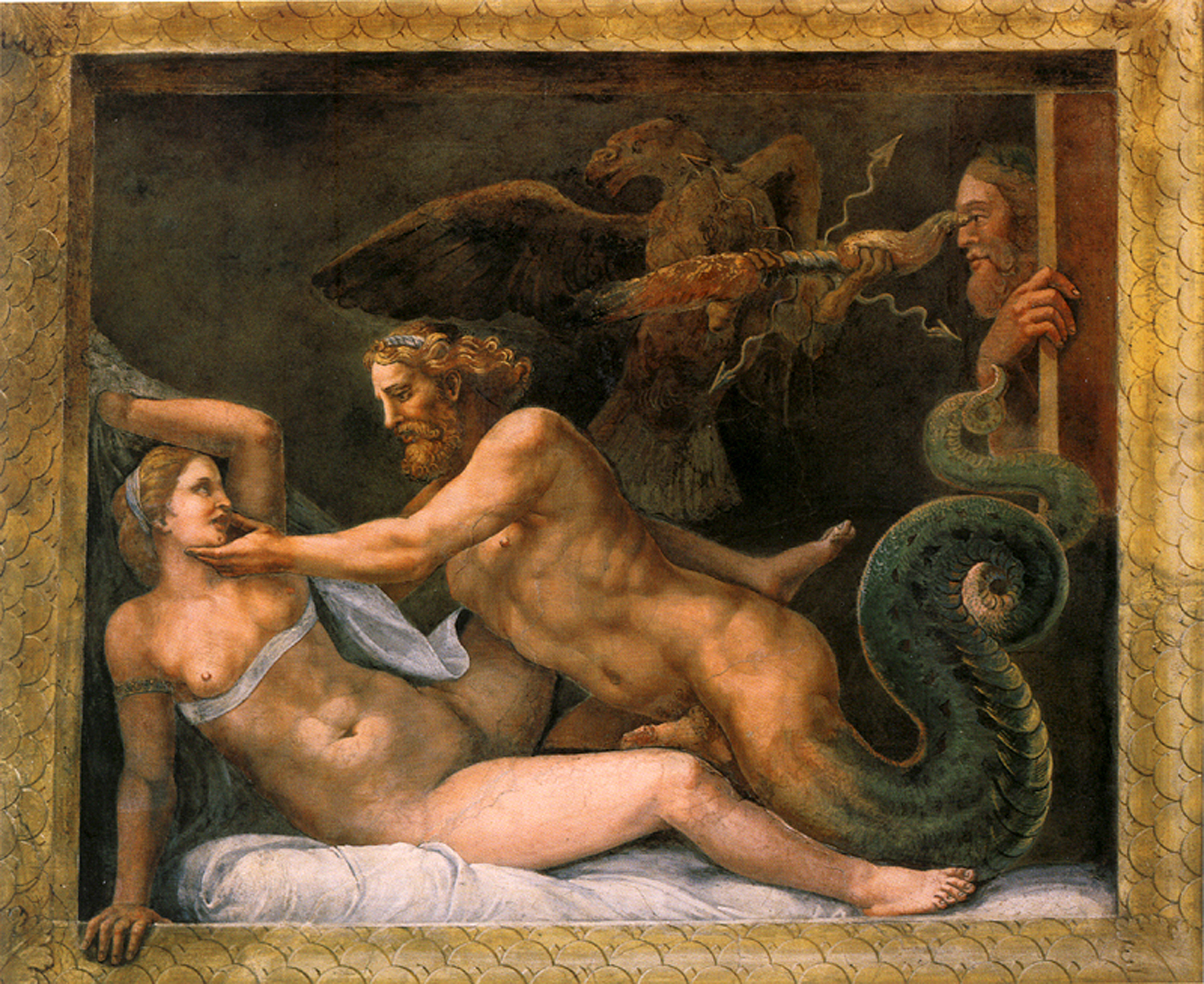 |
| Zeus seduces Olympias |
One night, the husband of Olympias, King Philip of Macedonia, found his wife embracing a snake in her bed. A snake, which she believed was Zeus in snake form. After this, Phillip no longer desired his wife and took other wives. He did have a son, though, with Olympias, a son who would later become Alexander the Great.
Zeus is The Father
According to the historian, Justin, Olympias confessed to her husband, King Phillip, that the child, Alexander, was not his son. His father, she claimed, was a snake. A snake who was really Zeus.
Later, when Philip was murdered by his bodyguard, Olympias was suspected of being behind the murderous plot, as she was known to have arranged the murder of a woman, Eurydice and her child, to ensure that Alexander would become king of Macedonia.
Alexander probably believed that he was the son of the god Zeus. After all, that was not an uncommon belief in that day and age, when people also routinely believed absolutely, in all kinds of superstitions and omens, as well.
Strange Portents
The death of Alexander at the age of 32 was also very mysterious according to Plutarch. There were reports of ravens fighting with each other over the city walls, with some dropping dead; a man with a deformed liver being sacrificed for the king and Alexander's best lion was kicked to death by an ass.
As is usual in these cases, Alexander's followers claimed that his body after death did not decompose, in order to make him appear more godlike. The disease Alexander actually died from is not certain, although, some suspect typhoid.
.jpg/320px-Babylonian_astronomical_diary_recording_the_death_of_Alexander_the_Great_(British_Museum).jpg) |
| Record of the death of Alexander (c. 323–322 BC) |
Books To Read
The Triumph Of Christianity, by religion scholar Bart Ehrman.

